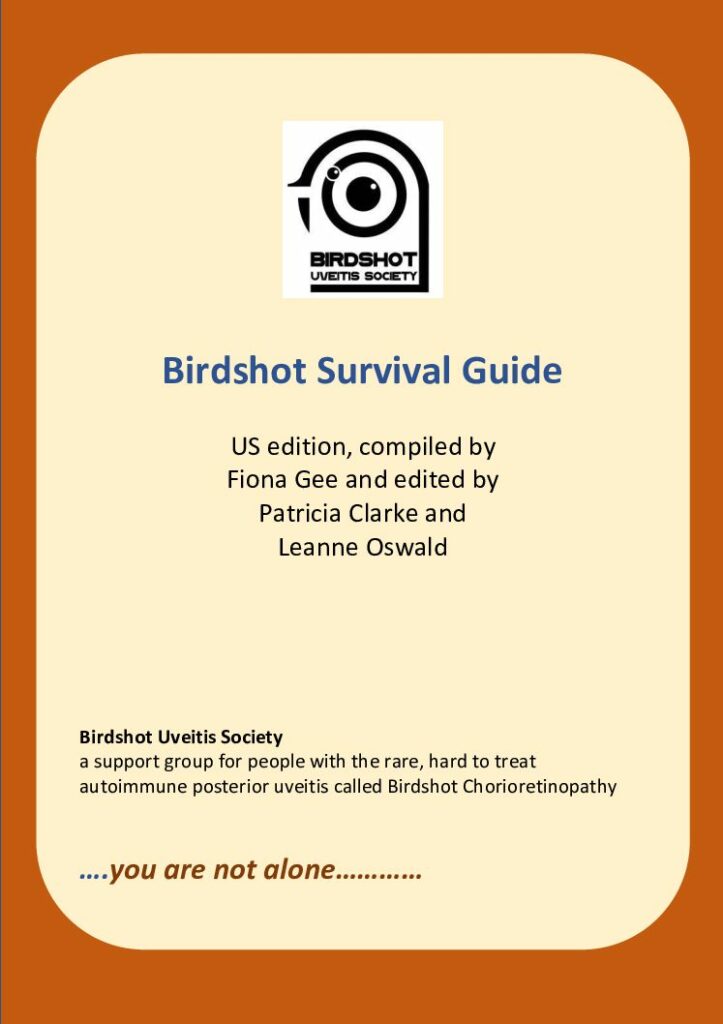Medical research takes money, and we’re grateful that BUS members continue to find imaginative ways to fundraise for research. However, research also takes time, so we thought you might like to know how some of our BUS-sponsored research projects are progressing.
Genetic control of iron levels in birdshot uveitis
What Dr Graham Wallace, University of Birmingham, wants to investigate is the association between the presence of HLA-A29 (which is carried by nearly all patients with birdshot) and an alteration in another gene which can cause iron overload in the body. Iron is essential for retinal function, and its levels are controlled by iron-regulating proteins. However, too much iron in eye tissues can cause damage. Dr Wallace intends to examine the genetic makeup of 75 birdshot uveitis patient samples from the UK Birdshot Biobank and also investigate the samples’ iron levels, looking for any connections between iron levels and birdshot.
Doing medical research often meets obstacles. In Dr Wallace’s study, the obstacle has been a lack of birdshot patient blood samples because setting up the UK Birdshot Biobank took much longer than expected. As the number of patient blood samples increases in the biobank, the study should be able to proceed.
We look forward to hearing more about this project.
A closer look at birdshot retinal cells
Changes in the retina occur in birdshot uveitis, particularly in the retinal pigment epithelium (RPE) cells. Until now, it has been very difficult to obtain samples of eye tissue from birdshot patients for studies. Dr Gonzales-Cordero and colleagues at University College London Institute of Ophthalmology wanted to find out if it was possible to use a technique called induced pluripotent stem-cell (iPS) modelling to generate RPE cells from birdshot patient’ blood samples. This would enable the cells to be studied in detail.
The investigators have successfully achieved this, even though the birdshot patients who donated blood samples were all receiving immunosuppressant treatment. The birdshot-derived RPE cells were found to be HLA-A29 positive, as were the birdshot blood sample donors.
These results are an exciting step forward because the iPS-derived RPE cell lines will become a continuing birdshot research resource. The researchers hope that these cell lines might eventually provide a laboratory method for testing new uveitis treatments or gene therapies.
Are there any early signs or symptoms that predict birdshot’s course?
This is a question that, till now, has been frequently asked but for which there have been few definite answers because birdshot’s progress is very unpredictable, even when treatment is started early. Mr Mark Westcott and colleagues at Moorfields Eye Hospital, London, have studied a large number of their birdshot patients’ medical records to look for possible answers.
They found that birdshot patients who at diagnosis had either normal Humphrey visual fields, or good dark-adapted electroretinogram (ERG) test results, or the absence of retinal atrophy, were most likely to have good treatment outcomes. Reassuringly, having birdshot diagnosed at a young age, or having macular oedema and poor vision at diagnosis, did not appear to affect the chances of eventually achieving a good treatment result.
These findings should allow ophthalmologists to be able to give newly-diagnosed patients some guidance on the possible progress of their birdshot.
Creating a Health Utility Value for birdshot
Receiving a diagnosis of birdshot, learning to live with its effects on vision and dealing with the side-effects of treatments all contribute to alterations in health-related quality of life (QoL). Professor Philip Murray and colleagues at University of Birmingham set out to identify the effects of birdshot on QoL, not only to assist doctors in understanding their patients’ problems better, but also to assist in wider official decision-making in evaluating treatments for birdshot. Creating a Health Utility Value specifically for birdshot – a patient estimate of their overall health state – would be a valuable evaluation tool.
Birdshot patients were recruited to complete a series of internationally recognised standardised QoL questionnaires. The results were combined with a set range of eye-related clinical observations made on each patient.
Preliminary results indicate that QoL is affected in birdshot patients, but not to the same extent as in patients with other types of uveitis affecting both eyes, Future studies could include asking patients to complete specific depression and anxiety questionnaires. This would add to the value of this pioneering research into QoL in birdshot.
